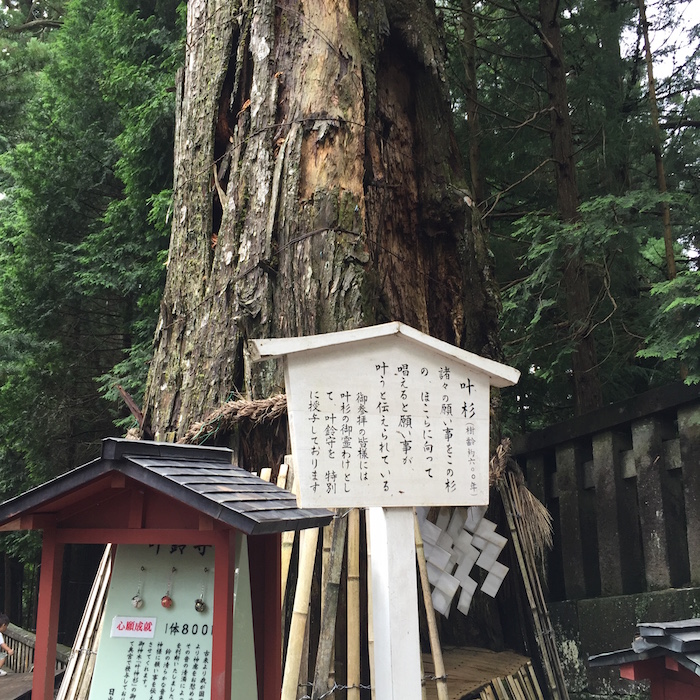
Nikko Toshogu Shrine is a shinto shrine dedicated to Tokugawa Ieyasu who was a famous general.
Contents
- 1 Where is Nikko Toshogu?
- 2 Parking lot at Nikko Toshogu
- 3 Buddist temple near Nikko Toshogu
- 4 Road to Nikko Toshogu
- 5 Cool entrance of Nikko Toshogu
- 6 Five-storied pagoda at Toshogu
- 7 Fee to enter the inside is 1300 yen for an adult
- 8 The entrance of Nikko Toshogu and Wind and Thunder Gods
- 9 San-Jin-Ko at Toshogu
- 10 Famous Three Monkeys at Nikko Toshogu
- 11 Temizuya at Toshogu
- 12 One more famous animal at Toshogu, Sleeping Cat
- 13 Kanau Sugi (Dream-Come-True Cedar) at Nikko Toshogu
Where is Nikko Toshogu?
Parking lot at Nikko Toshogu
It was after 8 o’clock in the morning that the parking lot was still vacant at this time. There are two parking lots in the vicinity and as you approach the Toshogu Shrine by the navigation, there is a large parking lot in Toshogu on the right side and another parking lot on the left side. I think that it is probably of Nikko Yamanote-ji Temple. I did not understand well, so when asking people at the parking lot office in the Nikko Ran – eji Temple side, both are charged or this is cheaper. I paid 500 yen and proceeded toward the entrance of the prefecture.
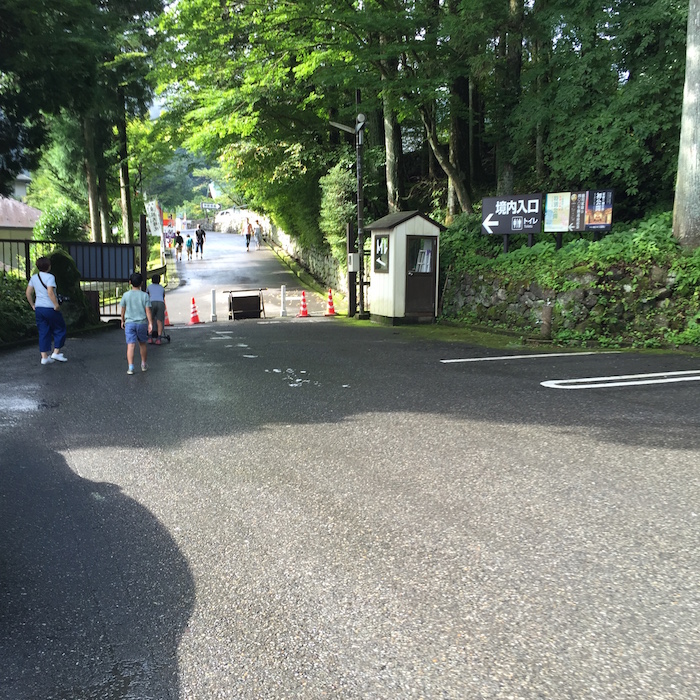
Buddist temple near Nikko Toshogu
Proceed to the back and pass the black gate of Nikko Yamanoteji. Ringoji Temple (Rin no Uji) is a temple temple of Tendai sect, together with Toshogu Shrine and Futarasan Shrine, is called “two companies one temple”. The monk was walking a lot.
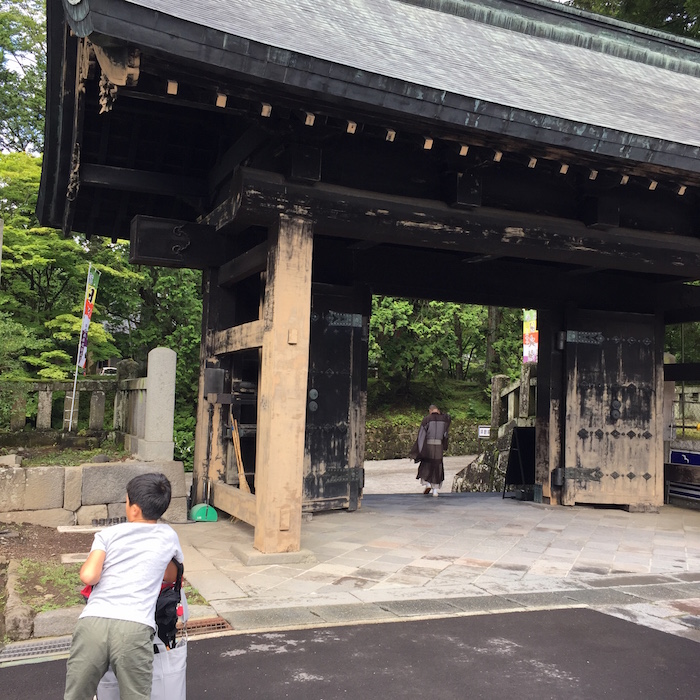
Road to Nikko Toshogu
Street of Cedar tree continues to Toshogu. It is a little uphill. Because it is a gravel road, pushing stroller is painful.
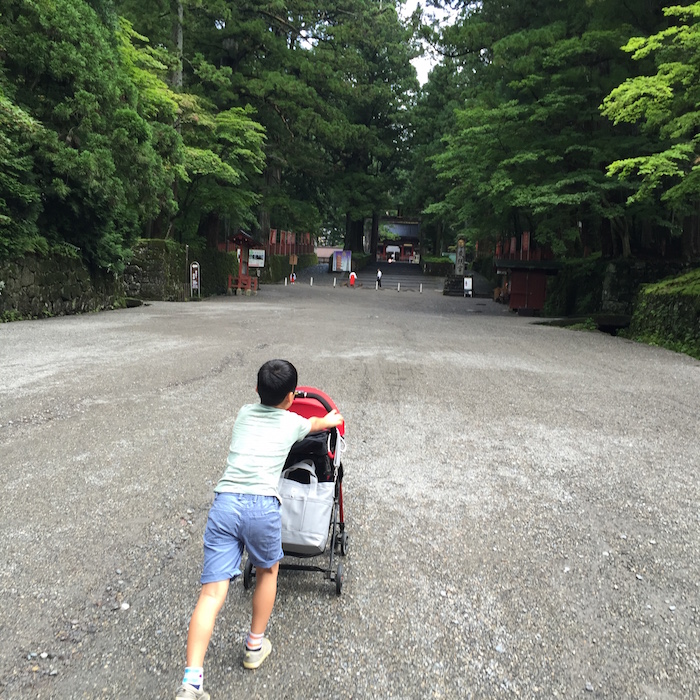
According to the sign board, here is the same height as the tokyo skytree.
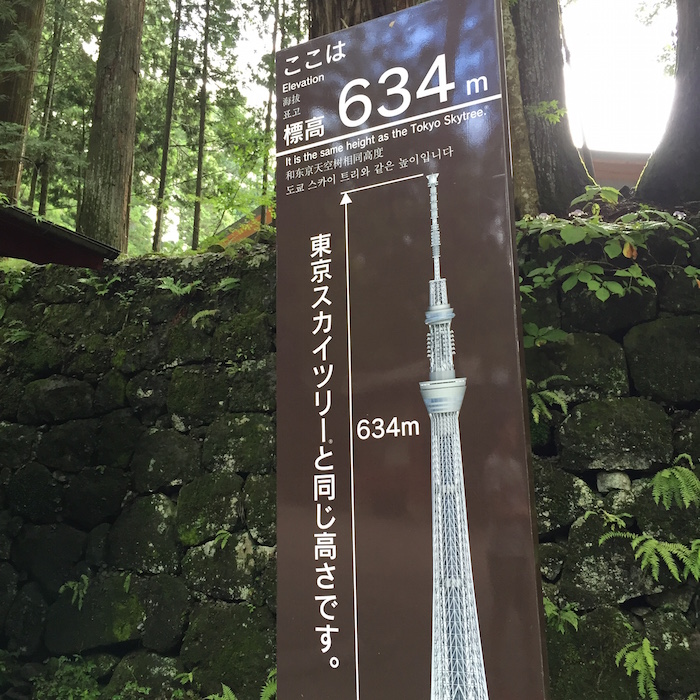
Cool entrance of Nikko Toshogu
We came to the entrance of the Toshogu Shrine. I can see the crest of the Tokugawa family. Tokugawa’s family crest, “Tsubakimon” is a plant crest called “Futabaaoi” and is derived from the Kamo Shrine in Kyoto. The shrine shrine priest, Mr. Kamo, and the samurai group living in Mikawa were so closely related that the Matsudaira family, the predecessor of the Tokugawa family, began to use samurai crests.
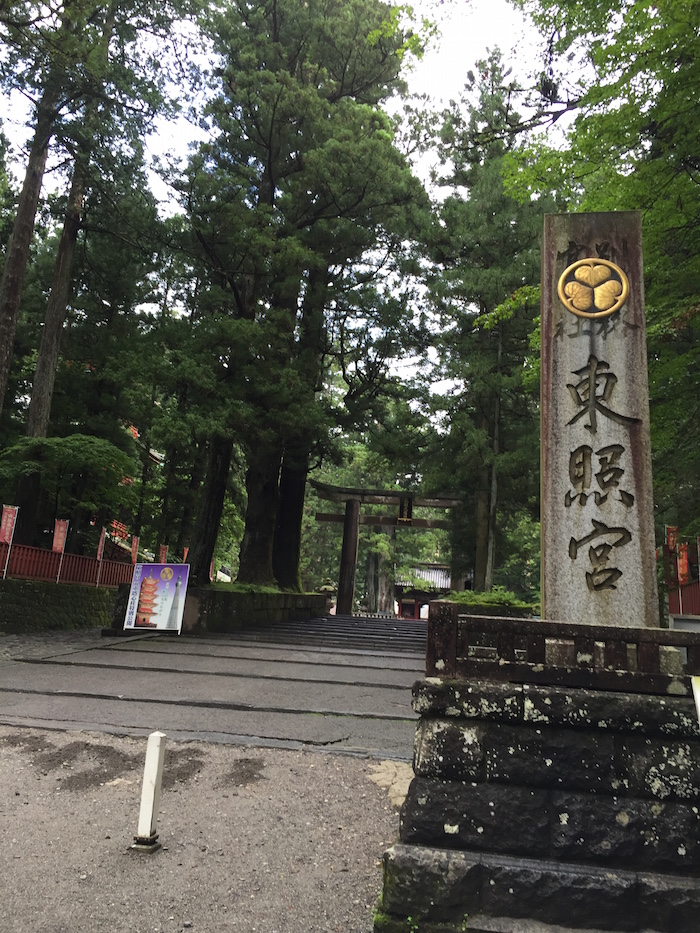
Five-storied pagoda at Toshogu
There is also a five-storied pagoda. The five-storied pagoda is one of the pagoda, which consists of the ground (basic), water (tower), fire (shade), wind (shower), sky (pearl) from the bottom, each having five worlds It shows that it represents a Buddhist cosmic view. Of course, I can not enter inside. By the way it’s free for here.
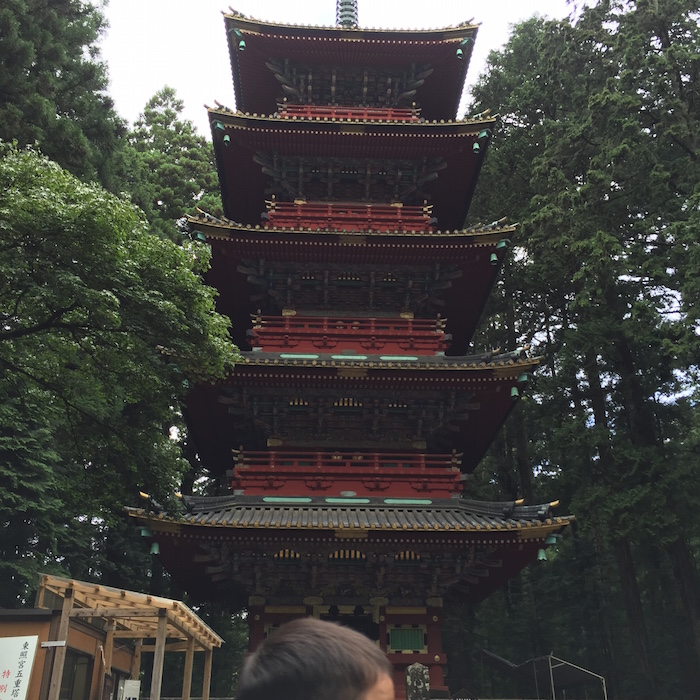
Fee to enter the inside is 1300 yen for an adult
To enter the pay zone it is necessary to purchase a worship ticket. It is 1300 yen for adults and 450 yen for children. It is a little expensive.
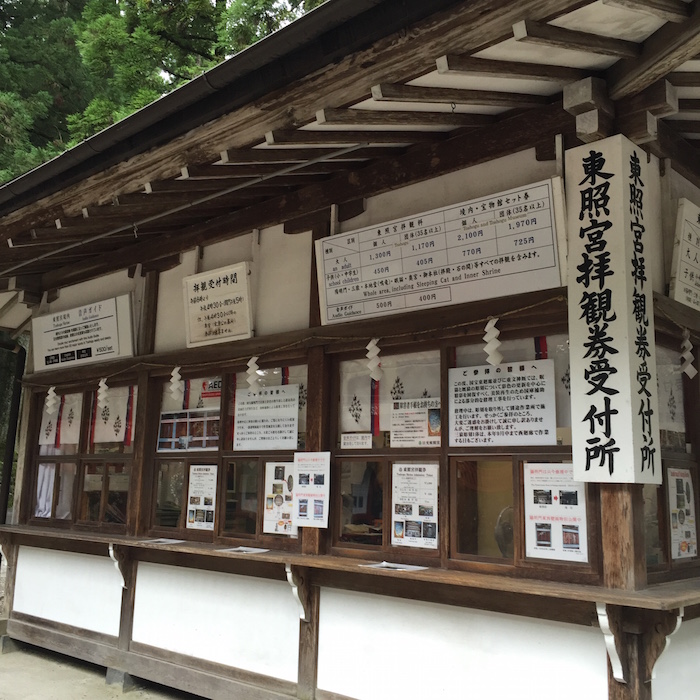
The entrance of Nikko Toshogu and Wind and Thunder Gods
This is the entrance. There are a wind god and a thunder god protecting the gate. In Buddhism, they are apostles of “Senjyu Kannon”. Senju Kannon is one of the sacred buddies in Buddhism. The original name is “Sahasrabhuja”. It means “Thousand Hands”. This name is also a synonym for Hindu Vishnu, Shiva, Goddess Durga and other gods and is considered to be a change of Kannon in India under the influence of Hinduism.
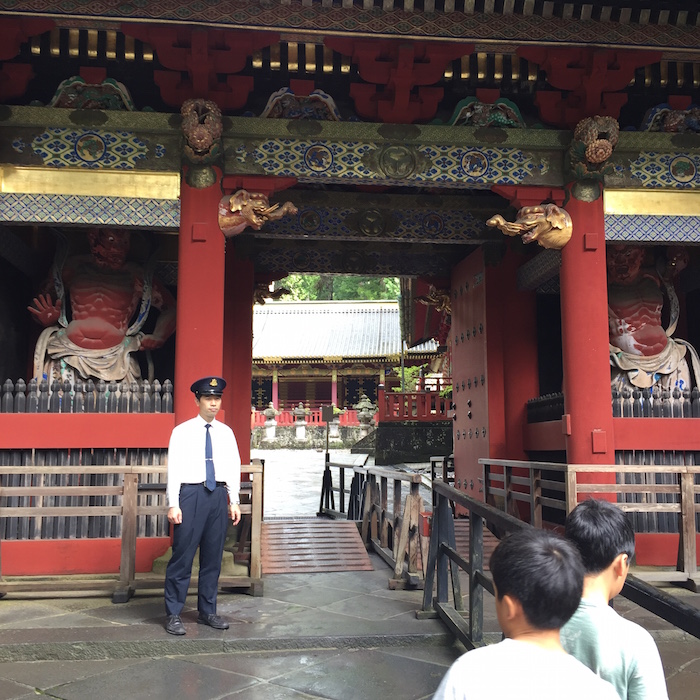
San-Jin-Ko at Toshogu
Building which is called San-Jin-Ko (Three Gods Warehouse) is visible soon after entering the front gate. From the side closer to the gate, it is called “Under God Warehouse”, “Middle God Warehouse” and “Upper God Warehouse”. As you can see from the name of the treasury, it seems that tools used for the festivals of Toshogu Shrine and treasure treasure etc. are being paid in the sense that it holds sacred festivals.
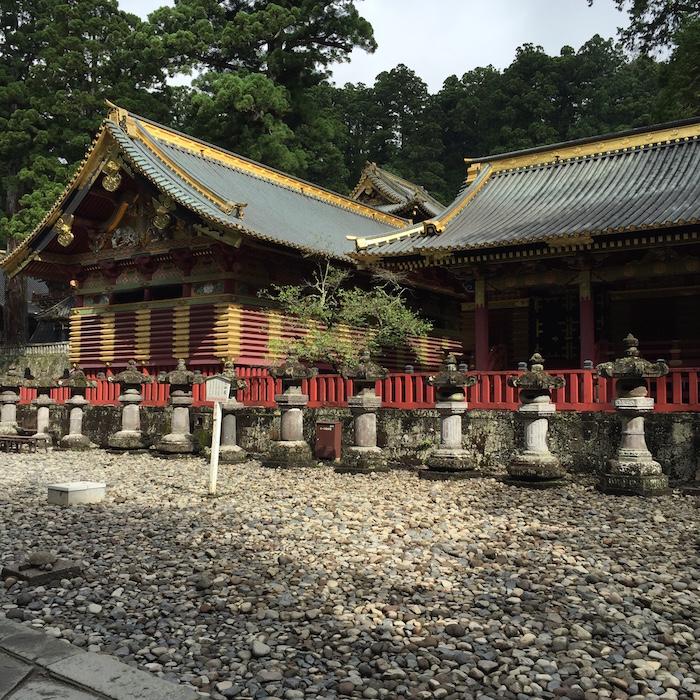
Famous Three Monkeys at Nikko Toshogu
It is a famous three monkeys hide their eyes, ears, and mouth with both hands. It shows the three secrets of wisdom: “I don’t see, I don’t hear and I don’t tell”. I don’t understand why they are wisdom..
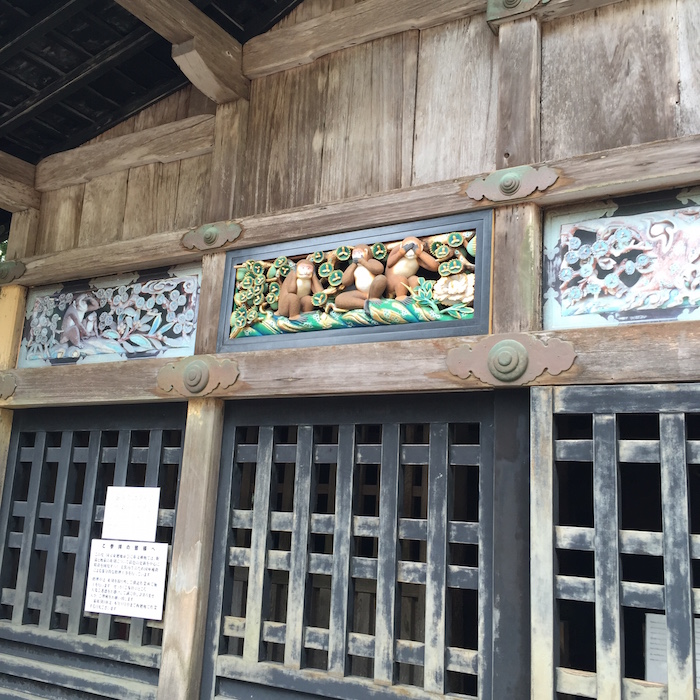
Temizuya at Toshogu
The water shop where the worshipers clean their hands and mouth.
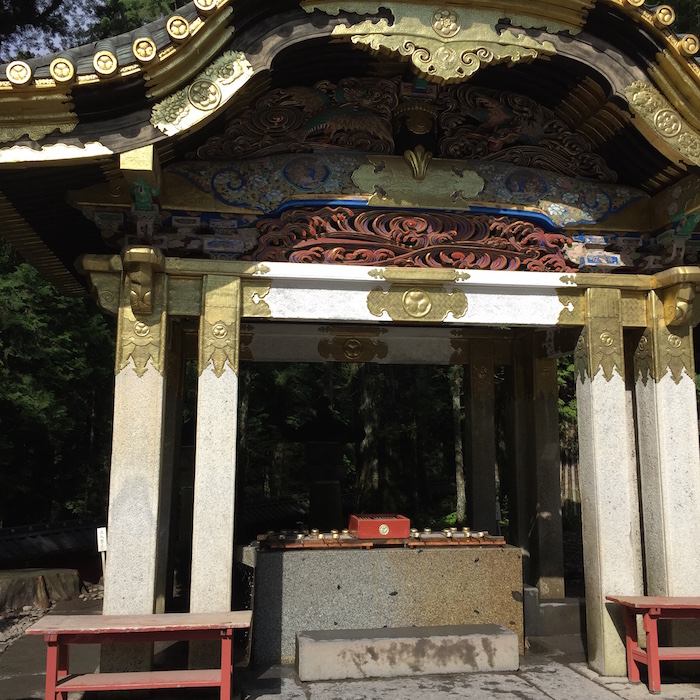
One more famous animal at Toshogu, Sleeping Cat
Because the main shrine is not photographed, I can not introduce it on this blog, but after the main shrine, we went to Sleeping Cat Okumiya.
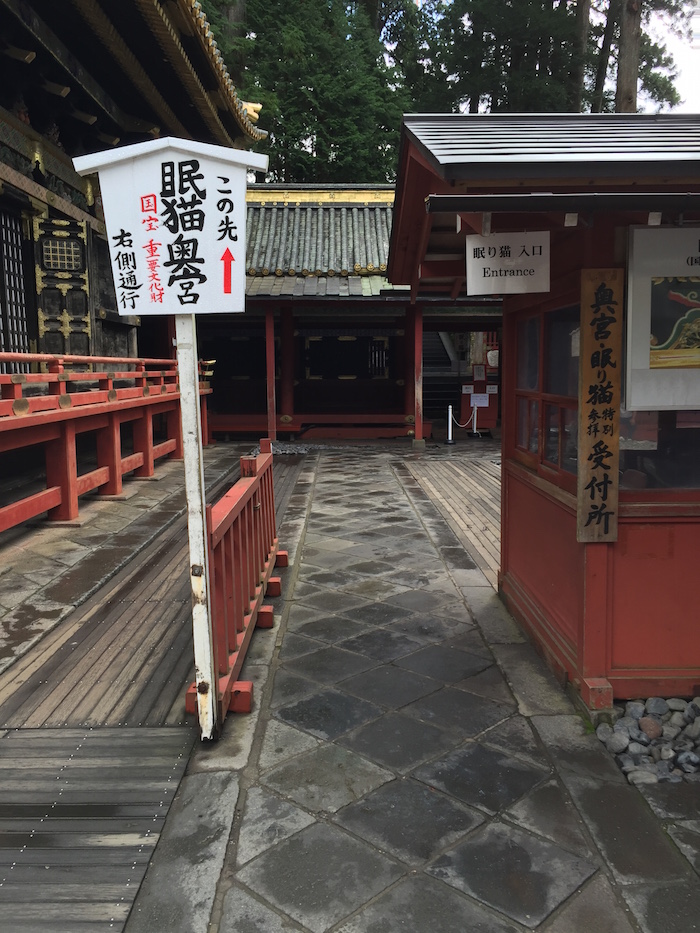
A long staircase follows.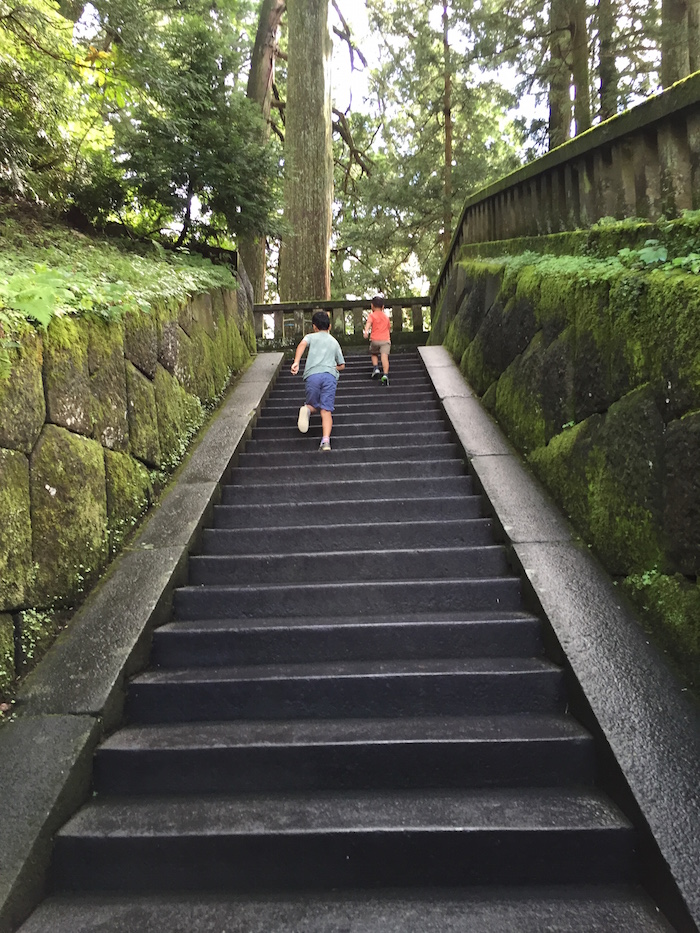
Walking along a long passage,
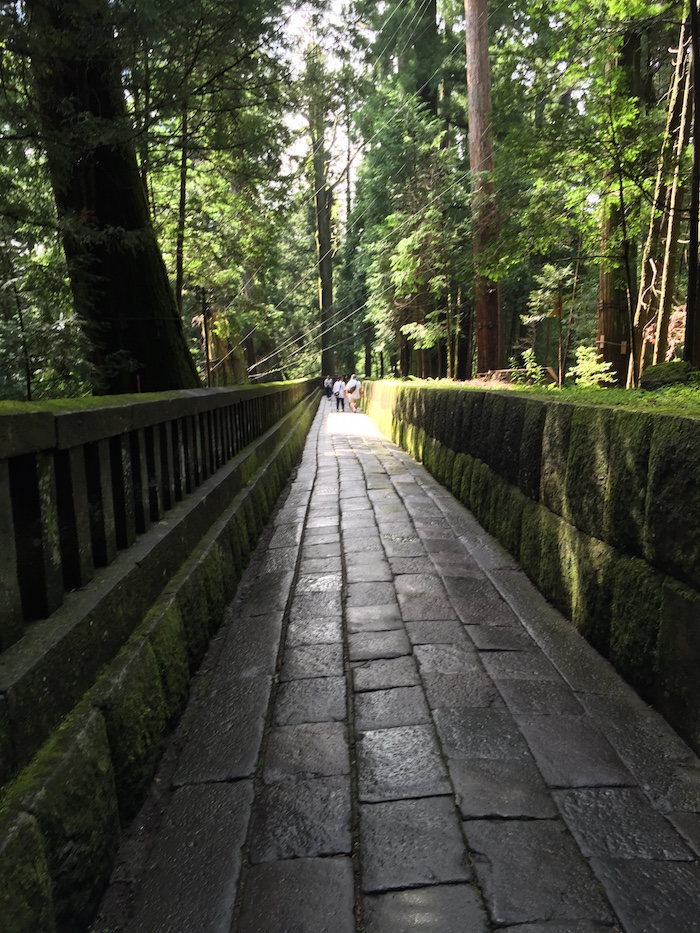
I climb further.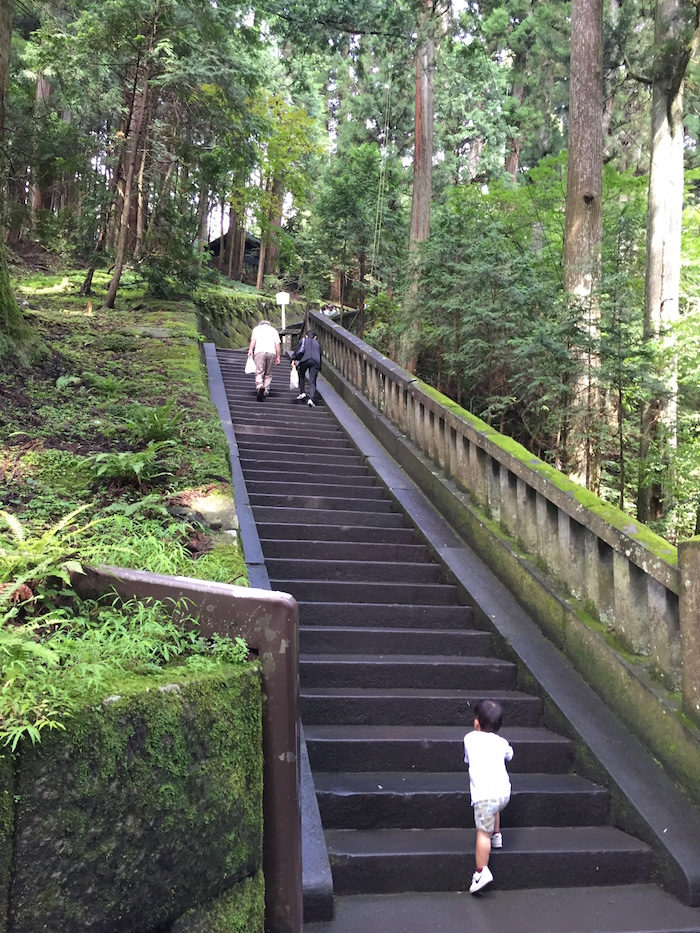
Finally it is the summit.
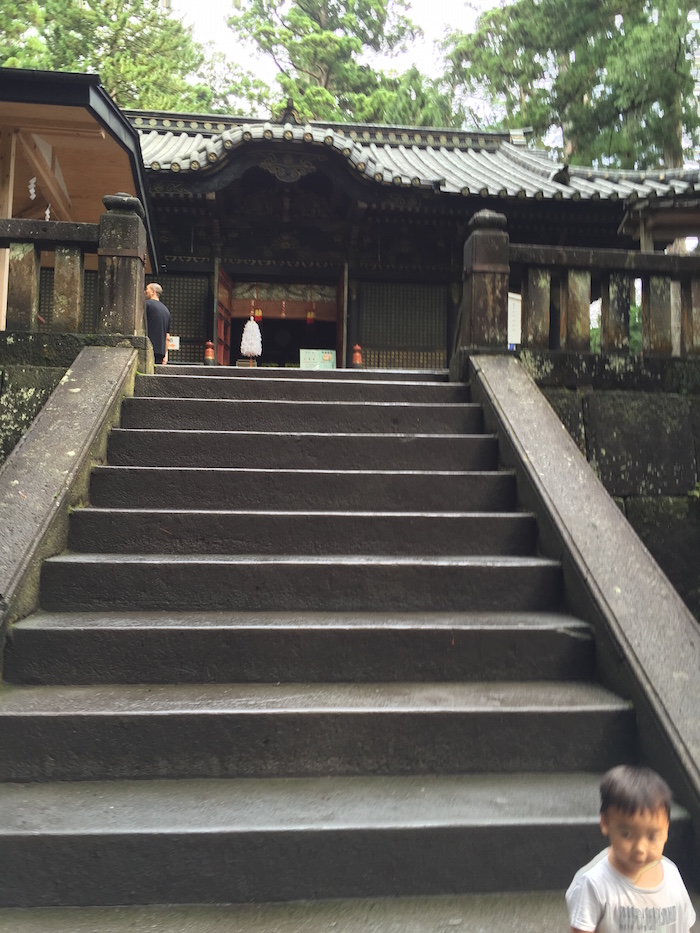
So this is Sleeping Cat Okumiya. Unfortunately, we cannot see well on this photo. The sleeping cat means “the arrival of the world where even cats with strong alertness can go to sleep with peace of mind”, and “the sparrows can rest assured when cats that are natural enemies are sleeping”. Simper, it represents “peace”.
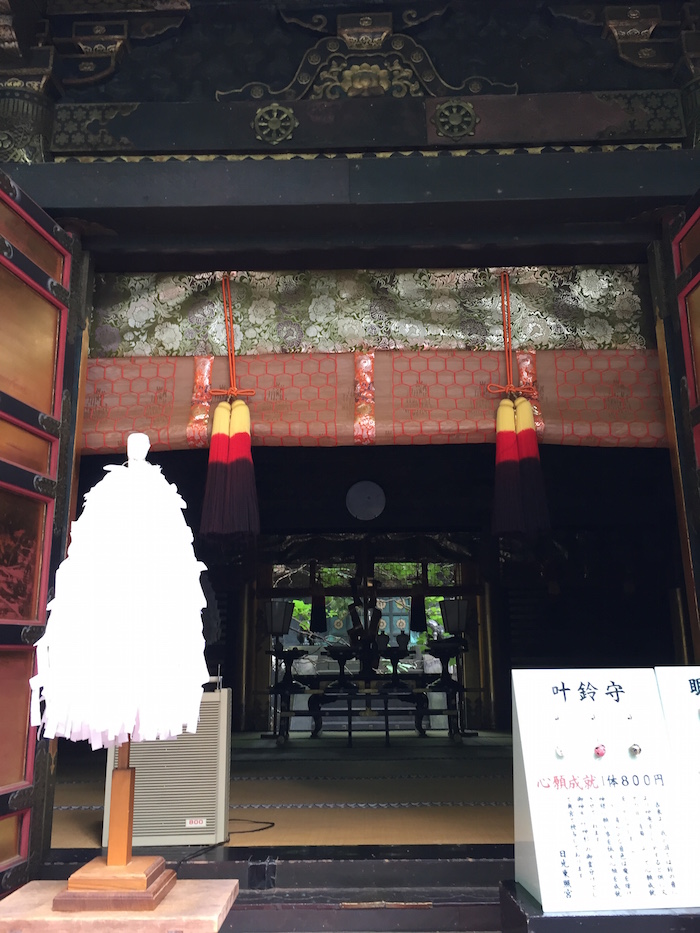
Kanau Sugi (Dream-Come-True Cedar) at Nikko Toshogu
There is a leaf cedar on the back which is said to make dream come true. This is definitely one of the power spots in Toshogu. The cedar is over 600 years old.
